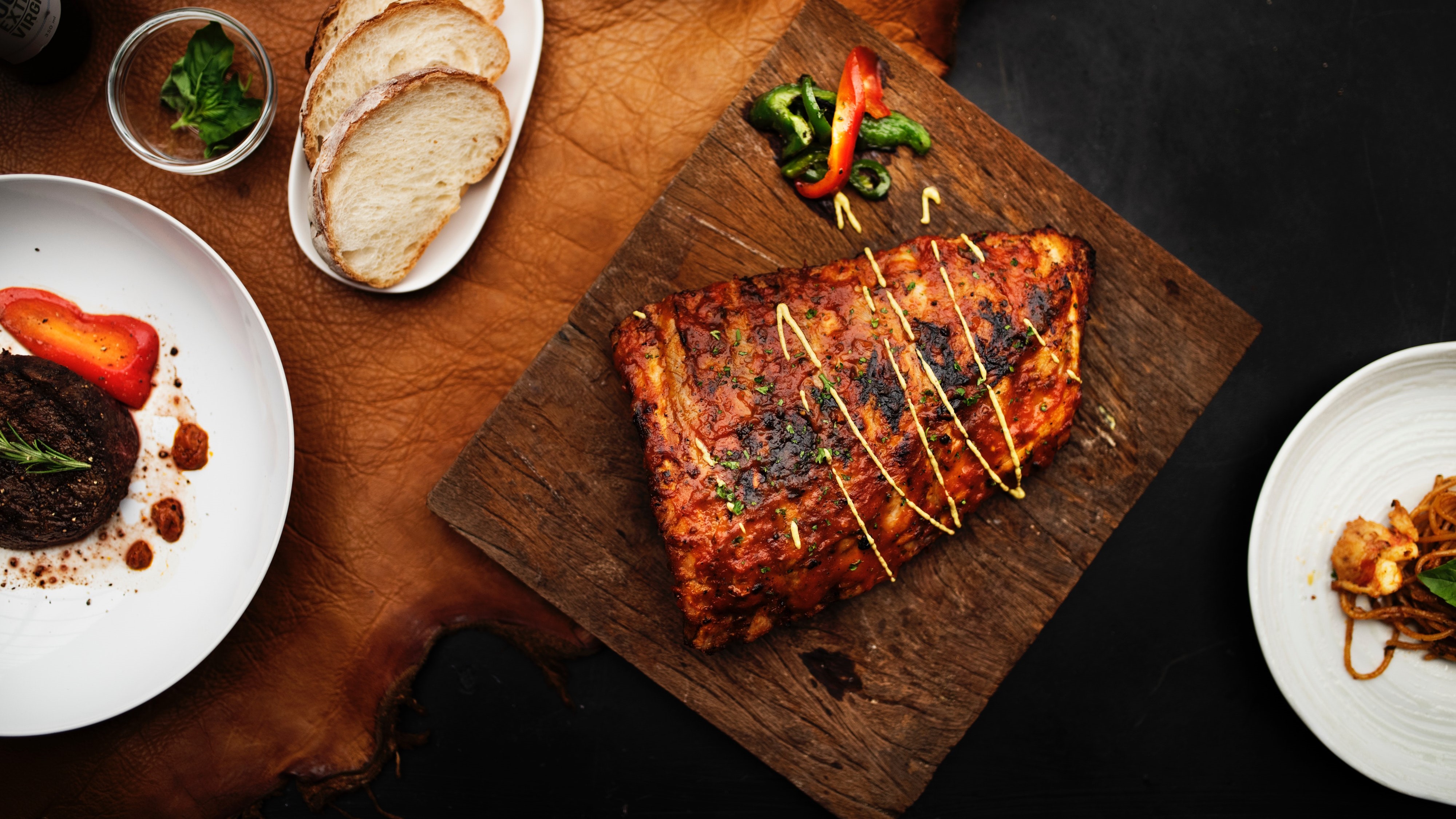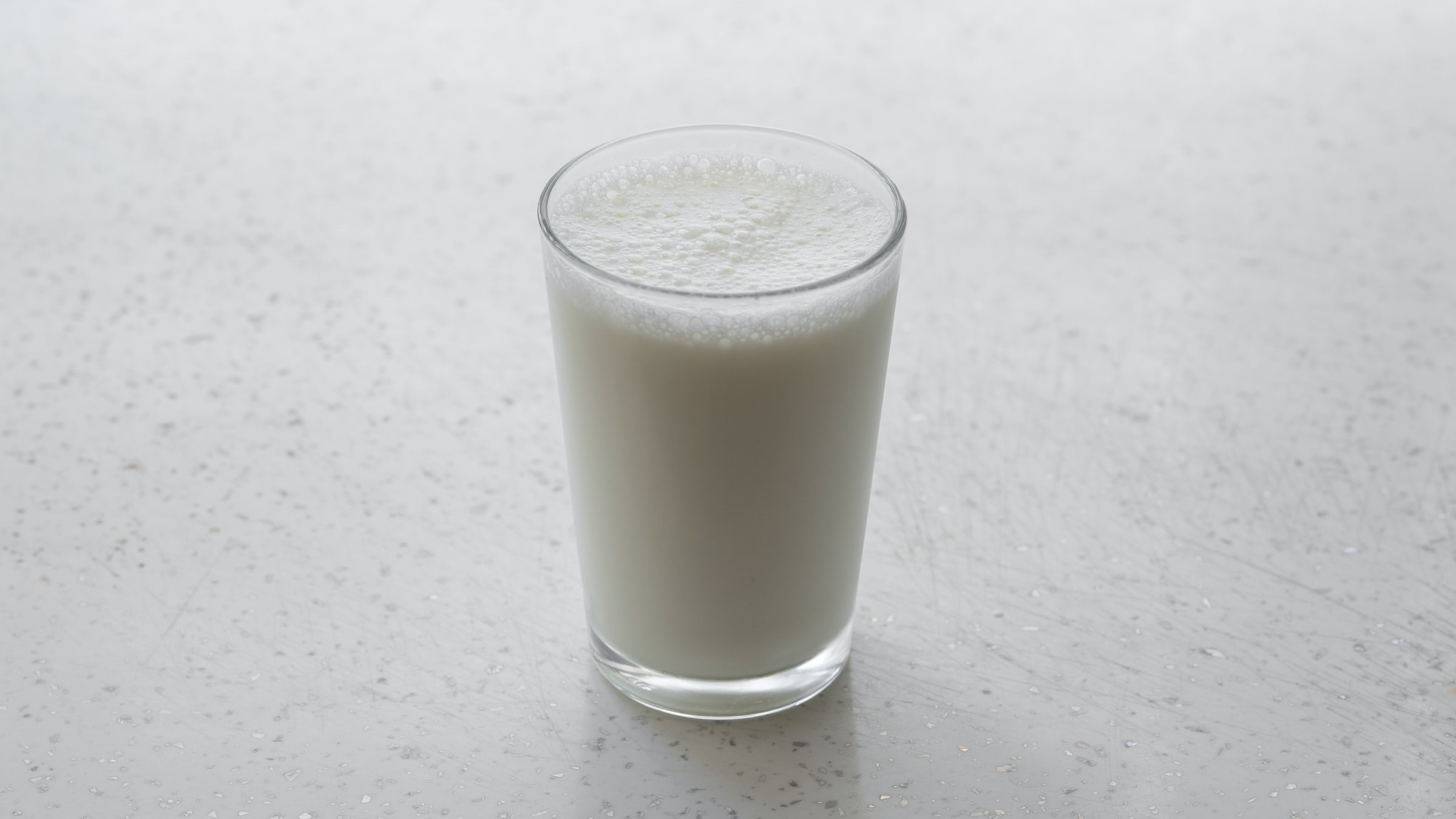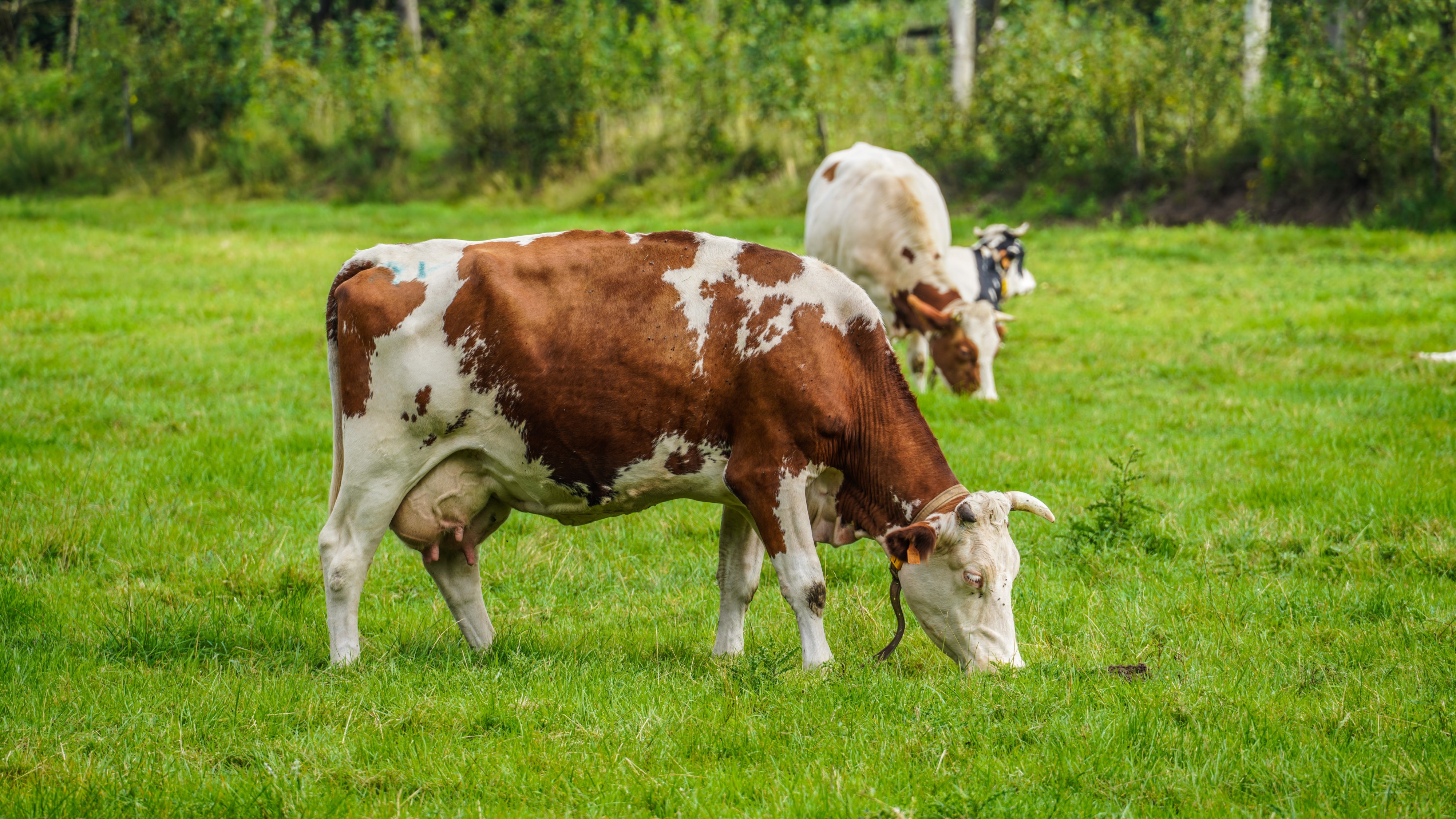November 2021: The Month in Review

After a busy October, this November continued a strong end to the year for the cellular agriculture field. Cellular agriculture is the field of producing animal products, like meat and dairy, directly from cell cultures instead of raising animals. Compared to conventional livestock agriculture, cellular agriculture offers a more sustainable way to produce animal products to meet the growing global demand without requiring animals.
From the first cell-based meat acquisition by a meat corporate to new facilities and product launches, we take at all the progress that happened this November in cellular agriculture.
Investments & Acquisitions
BioTech Foods
On November 18th, Brazilian meat giant JBS announced the acquisition of Spanish cell-based meat company BioTech Foods as part of its $100 million plan to enter the cell-based meat field.
Based in San Sebastian, BioTech Foods is the first cell-based meat company in Spain. The company previously received grant funding from the European Union and the Spanish government to explore the scalability of cell-based meat and its public health implications.

As part of the acquisition, JBS will invest $41 million towards constructing a new cell-based meat production plant in Spain for BioTech Foods to scale up the production of its cell-based meat. According to JBS, BioTech Foods already operates a pilot plant in San Sebastian and expects to reach commercial production by mid-2024.
In addition, JBS announced the company would set up a new Cultivated Protein Research Center in Brazil to develop new techniques to accelerate scaling and reduce the production costs of cell-based meat.
While the first acquisition by a meat corporate, there have been two previous cell-based meat acquisitions in the past year. At the end of 2020, MeaTech 3D announced the company acquired cell-based fat startup Peace of Meat for EUR 15 million. In August 2021, cell-based seafood company Shiok Meats acquired Gaia Foods in Singapore for an undisclosed sum to add red meat to its portfolio.
New Culture
Cell-cultured cheese startup New Culture raised $25 million in Series A funding. Based in San Leandro, California, New Culture uses cellular agriculture to produce its animal-free dairy cheese.
Focusing on animal-free mozzarella cheese, New Culture’s funding round was co-led by Ahren Innovation Capital and CPT Capital. Other investors in the funding round include Be8 Ventures, ADM Ventures, Evolv Ventures, Mayfield, and IndieBio. New Culture previously raised $3.5 million in seed funding in September 2019.
 New Culture's animal-free mozzarella cheese
New Culture's animal-free mozzarella cheese
New Culture initially aims to launch its cell-cultured mozzarella cheese in selected pizzerias later in 2022, with a broader launch in 2023. The company plans to launch its cell-cultured cheese as a co-branded pizza product with foodservice partners before exploring opportunities as an ingredients provider.
Along with its cell-cultured casein protein, New Culture shared its mozzarella cheese will also contain plant-based fats and sugars. Regarding regulation, the company is in discussions with the FDA and aims to achieve GRAS (generally recognized as safe) regulatory milestones before coming to market.
In June 2021, New Culture shared the company achieved important breakthroughs to produce substantial amounts of casein through its acellular agriculture platform.
Helaina
Cellular agriculture dairy startup Helaina announced the company raised $20 million in Series A funding. The funding round was co-led by Spark Capital and Siam Capital and featured investments from Primary Venture Partners and Plum Alley Investments. The financing brings Helaina’s total funding to date to $24.6 million.
Founded by Laura Katz, Helaina aims to use its microbial platform to produce the key immune-equivalent proteins found in breast milk. Helaina claims these proteins can act as antibacterial, antifungal, and antiviral agents and provide the same immunity for infants found in regular breast milk.

Moving forward, Helaina plans to use the funding round to begin its manufacturing and commercialization process and expand its team. In addition, Helaina intends to utilize its proteins to deliver the first humanized infant formula with proven immune benefits for newborns for its first product.
In August 2021, Helaina shared that the company is working with the FDA to develop a safe product. Following regulatory discussions, the startup will have a better idea of launching its first product.
Imagindairy
Cell-cultured dairy startup Imagindairy announced that the company raised $13 million in seed funding. Based in Israel, the new startup uses microorganisms to produce the same dairy proteins found in milk from a cow to create a range of animal-free dairy products. The company's technology is based on 15 years of research by co-founder and CSO Professor Tamir Tuller from Tel Aviv University.

The funding round was led by MoreVC and featured investments from the Strauss Group, Entree Capital, S2G Ventures, and the Collaborative Fund. Imagindairy plans to use the funding round to increase its team size, scale up its production platform, and accelerate research and development efforts to launch its first product. The company aims to launch its first animal-free dairy proteins by 2023.
Tiamat Sciences
Tiamat Sciences announced the startup raised $3 million in seed funding to produce animal-free proteins from its plant molecular farming platform. Through its plant platform, Tiamat Sciences claims the company can produce a range of proteins, including growth factors for cell-based meat production, ten times cheaper than the current market offers.
Tiamat Sciences’ funding round was led by True Ventures and featured investments from Social Impact Capital and Cantos. Moving forward, Tiamat Sciences aims to scale production and build a pilot production facility in Durham, North Carolina. By 2025, the company aims to further reduce the price of its current protein products by 1000 times with large-scale production.
Roslin Technologies
Roslin Technologies announced the company received a £1 million grant to develop cell lines for cell-based meat production from UK Research and Innovation. Cell line development is an essential step in scaling cell-based meat production. To date, Roslin Technologies is the only commercial cell line provider of induced pluripotent stem cells (iPSCs) that can divide indefinitely and differentiate into a wide range of cells for cell-based meat companies.
The company presently offers a porcine cell line for pork meat and aims to provide a bovine cell line for beef meat soon. Roslin is also looking to develop an ovine cell line for lamb meat and crustacea cell line. The company also aims to raise its Series A funding round in 2022.
Gelatex
Based in Tallinn, Estonia, Gelatex raised EUR 1.2 million (approximately $1.4 million) in seed funding to develop scaffolding for cell-based meat production. An important part of cell-based meat for structural support, scaffolding is important to make sure the cells grow into muscle fibers that have the same taste, texture, and shape as conventional meat.
Gelatex’s funding round was co-led by Change Ventures and Cross Light Partners. The company previously received support from the US accelerator TechStars.
 Gelatex co-founders with their scaffolding material Märt-Erik Martens and Mari-Ann Meigo Fonseca
Gelatex co-founders with their scaffolding material Märt-Erik Martens and Mari-Ann Meigo Fonseca
Moving forward, the company plans to use the funding round to scale the production of its scaffolding material for the cell-based meat field. At current production volumes, Gelatex claims its nanofibrous scaffolding reduces the cost of scaffolding from EUR 100,000 per kilogram to EUR 1,000 per kilogram.
Gelatex aims to reduce the cost of scaffolding to EUR 40 per kilogram of meat in less than five years and EUR 20 per kilogram of meat in less than ten years. Ultimately, the company aims to scale production where the cost of its scaffolding would be less than EUR 1 per kilogram of cell-cultured meat.
Gelatex also shared the company is currently working with eight cell-based meat companies to test their nanofibrous scaffolding material.
Shiok Meats
After first announcing its bridge funding round in July 2021, Shiok Meats announced the cell-based seafood startup secured follow-on funding for the round. The Singapore-based startup shared that Cultured Seafood LLC and Yi Sung Yong, the CEO of Singapore cloud kitchen Grain, joined the investment round in the follow-on funding.
While Shiok Meats did not disclose the total amount raised, the company shared the bridge round brings its total funding to approximately $30 million. After showcasing the first cell-based shrimp product in March 2019, Shiok Meats aims to launch its first shrimp product to market by 2023. In August, Shiok Meats announced the acquisition of Gaia Foods, the first cell-based red meat company in Southeast Asia.
Ohayo Valley
In the United States, new cell-based meat startup Ohayo Valley announced the startup raised pre-seed funding from investment firms Agronomics and CULT Food Science. Founded by Jess Krieger, Ohayo Valley aims to use its technology platform to produce cell-based Wagyu ribeye steaks. Before founding Ohayo Valley, Krieger was formerly a New Harvest Research Fellow and the co-founder of Artemys Foods.
De Novo Dairy
De Novo Dairy announced the South African startup raised its pre-seed funding round to develop cell-cultured dairy proteins. The first startup to focus on producing dairy productions via acellular agriculture (or precision fermentation) on the continent of Africa, De Novo Dairy plans to use the undisclosed funding round to continue initial research and development, including creating a product prototype. The pre-seed funding round included investments by Big Idea Ventures, Kale United, and Sustainable Food Ventures, along with angels and family offices.
Upside Foods Launches EPIC Facility
Upside Foods announced the opening of their new cell-based meat facility in California.
Formerly known as Memphis Meats, Upside Foods was founded by Uma Valeti and Nicholas Genovese in 2015 as the first cell-based meat company. Since then, the field has expanded, and there are now companies all over the world looking to transform the future of food with cellular agriculture.
 Upside Foods' EPIC Facility can make both ground meat and whole cuts
Upside Foods' EPIC Facility can make both ground meat and whole cuts
Calling the facility EPIC (Engineering, Production, and Innovation Center), Upsides Foods shared that its facility can produce up to 50,000 pounds of finished cell-based meat products per year with a future capacity of over 400,000 pounds annually. Upside Foods claims the company can make both ground meat and whole cut versions of poultry, meat, and seafood from their technology platform in its new facility.
During the opening ceremony, Upside Foods shared plans to start working with its first restaurant partners during the opening ceremony and start producing its cell-based meat, pending regulatory approval. In May 2021, the company shared that its first product will be a cell-based chicken, branded as Upside Chicken.
As the year comes to an end, it is promising to see more companies announce the opening of their new cell-based meat facilities. Scaling is a major challenge for the field, and launching pilot plants is an important steppingstone for the industry to understand how production will look at scale before moving into larger production facilities in the future.
As more companies look to scale production, we will likely see more companies move into larger pilot plant facilities as they plan to come to market. For example, in June 2021, both Future Meat Technologies and Wild Type announced the launch of their pilot plants to produce cell-based meat and seafood, respectively. In addition, in August 2021, Eat Just also announced plans to build a larger cell-based meat facility in Qatar.
Shiok Meat Launches ‘Mini-Plant’ in Singapore
Cell-based seafood company Shiok Meats announced the launch of its ‘Mini-Plant,’ the first “advanced” R&D facility in Singapore for cell-based seafood. Located at the company’s headquarter at Innovate 360, the Mini-Plant is a stepping stone towards scaling production for its pilot plant facility, which will also be in Singapore.
 Shiok Meats' Mini-Plant is located in its headquarters in Singapore
Shiok Meats' Mini-Plant is located in its headquarters in Singapore
The Mini-Plant was conceptualized with the engineering firm Black & Veatch, and FoodNet International Holdings constructed the plant. After showcasing the first cell-based shrimp product in March 2019, Shiok Meats aims to launch its first shrimp product to market by 2023. In addition to shrimp meat, Shiok Meats previously showcased the first cell-based lobster meat in November 2020 and cell-based crab in August 2021.
Perfect Day’s Busy Month of Collaborations and Product Launches
In the span of a month, cellular agriculture company Perfect Day announced and launched a range of new products and partnerships for its cell-cultured dairy proteins.
To start, Perfect Day recently announced a partnership with major food company General Mills to launch Bold Cultr, a new animal-free cream cheese using Perfect Day’s animal-free dairy proteins. Perfect Day’s first partnership with a major multinational food corporation, Bold Cultr, highlights the growing interest in alternatives to conventional dairy products. Bold Cultr’s first product will be a plain animal-free dairy cream cheese and will initially launch in select Hy-Vee stores in Minnesota.
 New whey protein powder products featuring Perfect Day's flora-based whey protein
New whey protein powder products featuring Perfect Day's flora-based whey protein
Along with General Mills, Perfect Day also announced a partnership with wellness brand Natreve to use its cell-cultured dairy proteins to produce an animal-free whey protein powder. Calling the brand Mooless whey protein, Perfect Day claims its animal-free whey protein powder has the same nutrition, performance, and functionality as conventional whey protein.
Interestingly, while announcing these new partnerships for cream cheese and protein powder, Perfect Day is also developing the same products internally.
At the same time as the company's giant funding round in September, Perfect Day announced the launch of its next product line via its Urgent Company subsidiary: Modern Kitchen, a new animal-free dairy cream cheese using its dairy proteins. While the company aimed to launch this November, Modern Kitchen shared that its pre-orders will now be shipped in December due to supply chain issues.
In addition, while announcing the partnership with Natreve, Perfect Day also launched its own whey protein powder brand through the Urgent Company: California Performance Co. In addition, at the end of October, the Urgent Company also announced the launch of a yellow cake mix using Perfect Day’s dairy proteins through the Brave Robot brand.
 The Urgent Company's next product line, Modern Kitchen
The Urgent Company's next product line, Modern Kitchen
Beyond using dairy proteins as an ingredient, global coffee chain Starbucks recently announced the company is testing cell-cultured milk produced by Perfect Day in two locations in the Seattle Area. With no additional charge to customers, Starbucks shared the cell-cultured milk foams and steams like conventional milk and can be served hot or cold. Another Starbucks location in Palm Springs, California, also tested Perfect Day’s cell-cultured dairy ice cream in October.
With three new product launches, two new partnerships, and one product trial in Starbucks, it has been a solid end for the year for Perfect Day. By launching its own brands along with partnerships, Perfect Day likely believes the company can accelerate market adoption as the company works to develop the new cell-cultured and animal-free dairy category.
The Every Company Partners with Pressed Juice to Launch Smoothie
The Every Company announced a partnership with plant-based snack company Pressed to launch its animal-free egg white proteins in a new Pressed juice smoothie.
Formerly known as Clara Foods, The Every Company is a startup that uses cellular agriculture to produce animal-free proteins, specifically egg proteins. By designing yeast to make the same proteins found in an egg from a chicken, The Every Company aims to produce the same egg white. Without requiring the chicken.
 Pressed's new smoothie containing The Every Company's animal-free ClearEgg product
Pressed's new smoothie containing The Every Company's animal-free ClearEgg product
According to the partnership, Pressed will include The Every Company’s ClearEgg product in its Pineapple Green Protein Smoothie. According to The Every Company, ClearEgg is a highly soluble and nearly tasteless protein that can be used as an ingredient to increase the protein content of various foods and beverages.
In addition to the protein boost, compared to plant-based and animal-derived protein ingredients, The Every Company claims that ClearEgg has a better and more neutral sensory profile and does not require any sugar or flavors to mask its taste.
At the time of launch, the Pineapple Green Protein Smoothie is available for a limited time in Los Angeles and New York. Following the limited launch, Pressed shared that the company aims for a more significant launch across the US in the new year. It's notable that the price of the smoothie, $7.85, is on par with the price point of Pressed’s other smoothies.
Regarding labeling, the Pineapple Green Protein Smoothie includes a label of “egg white protein (non-animal source)” in the ingredients list of every co-branded product. The smoothie also contains an egg allergen warning. The smoothie is also labeled as ‘vegan’ and ‘animal-free.’
The product launch marks a solid end to the year for The Every Company. Along with rebranding in October, The Every Company previously launched its first product, an animal-free pepsin protein, in March 2021.
Bond Pet Partners with Hill’s Pet Nutrition to Develop Animal-Free Pet Foods
Bond Pets announced a partnership with Hill’s Pet Nutrition to develop an alternative to one of Hill’s popular meat pet foods. Based in Boulder, Colorado, Bond Pets is a pet food startup that uses cellular agriculture to produce sustainable pet food.
 Bond Pets' dog treat bar
Bond Pets' dog treat bar
According to the news, Bond Pets will work with Hill’s Pet Nutrition to develop pet food for cats and dogs. While the companies did not share a planned date for the product, Bond Pets previously stated it aims to scale up its prototype and bring a cultured chicken protein product for pets to market by 2023.
Mosa Meat Breaks Down Tech in The Counter Response
Following the publication of a deep dive about the viability of cell-based meat by the Counter in September, cell-based meat company Mosa Meat wrote a response addressing many of the concerns brought up in the article. From cell culture media formulation to bioreactor technologies, the Dutch startup addressed many areas of concern brought up in the deep dive. While Mosa Meat acknowledged there are many challenges that the field will need to address, the cellular agriculture field has already addressed many and can continue to do so.
Aleph Farms Shares Plan to be Net Zero Carbon by 2025
One of the central promises of cellular agriculture is improving the environmental impact of producing animal products. Cell-based meat company Aleph Farms recently shared how the company plans to achieve net-zero carbon by 2025.
 Aleph Farms' cell-based steak
Aleph Farms' cell-based steak
In a plan developed in collaboration with Christensen Global Strategies, Aleph Farms shared a strategy that included a transition to renewable energy, increased energy efficiency, and decarbonizing its production lines and supply chains. The company also shared plans to work with ENGIE Impact and CE Delft to monitor its environmental impact. Aleph Farms first announced its new sustainability strategy in April 2020.
Cellular Agriculture Makes the Forbes 30 Under 30
For the fourth year in a row, cellular agriculture leaders featured on the Forbes 30 Under 30 listing. Like December 2020, leaders from two cellular agriculture companies were on the list. Helaina founder and CEO Laura Katz featured in the Listing of Food and Drinks leaders, and Jellatech co-founder and CEO Stephanie Michelsen featured in the Listing of Science leaders. The list commemorates innovative founders and startups, and it’s great to see Katz and Michelsen recognized for their incredible work to change the future of food.
In the Wider Future of Food World

Impossible Foods
Plant-based meat company Impossible Foods raised $500 million in a new funding round. Led by Mirae Asset Global Investments, the funding round brings Impossible Foods’ total funding to over $2 billion - as much as the entire cellular food ecosystem.
Impossible Foods plans to use the funding ground to expand its retail growth and further product development. Impossible Foods’ plant-based products are currently available in about 22,000 grocery stores and 40,000 restaurants worldwide. In the last few months, Impossible Foods released several new products, including the Impossible Sausage and Impossible Chicken Nugget, in grocery stores and Impossible Pork in foodservice.
While the company’s first funding round this year, Impossible Foods previously raised $200 million in August 2020 and $500 million in March 2020.
Beyond Meat
After announcing the launch of the latest of its plant-based chicken product in July during the summer, Beyond Meat had a smaller rollout of its latest product than expected. Beyond Meat’s challenges with the launch of its plant-based chicken, from supply chain to distribution problems, highlight what other future food companies may have to address when scaling production. To avoid the same challenges, it will be necessary for the cellular agriculture food field to develop a broader supply chain ecosystem as the field scales.
Michroma
How can the future of food coloring be made from fungi? Michroma shared that the startup has advanced to pilot scale production for its natural food colors production platform. Focusing on its red colorant, Michroma claims it can compete with synthetic dyes due to its performance and sustainability. The company scaled to a pilot scale with a contract manufacturing organization (CMO) partner in Argentina and is in touch with several CMOs in the US and around the world. Similar to cell-cultured meat and animal proteins, Michroma’s approach to scaling production could offer insights into how other companies focusing on cell-cultured ingredients could scale production.
Conclusion
This November was a great end to the year for the cellular agriculture field, from the first corporate acquisition of a cell-based meat startup to new funding rounds. With nine funding rounds, this November featured an investment galore for both new and established startups as they plan to continue building the future of food in the new year.
As the first acquisition by a conventional meat corporation, JBS’s acquisition is an important moment for the field. Furthermore, as JBS’s first entry into the cell-based meat field, the acquisition signals JBS’s interest in keeping up with the growing global demand and interest in alternatives to conventional meat, including cellular agriculture. In April 2021, JBS acquired European plant-based meat company Vivera for EUR 341 million.

Moving forward into 2022, as more cell-based meat startups look to scale production to ultimately come to market, we will likely see more traditional food and meat companies try to keep up with the cell-based meat field either through acquisitions or partnerships. In July, for example, Nestle partnered with Future Meat Technologies to explore the potential of cell-based meat.
In addition, it is promising to see the new product launches through new collaborations for both Perfect Day and the Every Company. While Perfect Day is launching new products through both partnerships and its subsidiary, the Every Company’s approach is similar to how Perfect Day first launched its first animal-free dairy ice cream in May 2020. It will be interesting to see if the Every Company continues to launch new products through collaborations or explore developing its own consumer-facing products.
With the launch of new acellular food products, it will now be a matter of time, scaling, and regulation for when cell-based meat products can come to the broader market. While it is vital for the field to discuss the challenges of scaling productions and the technological breakthroughs required, the launch of both Upside Foods’ facility in San Francisco and Shiok Meats’ ‘Mini-Plant’ in Singapore highlight how companies are looking to rise to the challenge. It is also promising to see Mosa Meat engaging in the discussions around the company's challenges to scale production and make cellular agriculture viable.
From scaling facilities and new investments and products launches, November 2021 marks a strong end to the year 2021 for the field as it moves closer to becoming part of the future of food.
Stay connected with CellAgri
Join our mailing list to receive the latest news and updates weekly from the cellular agriculture industry. Your information will not be shared.



